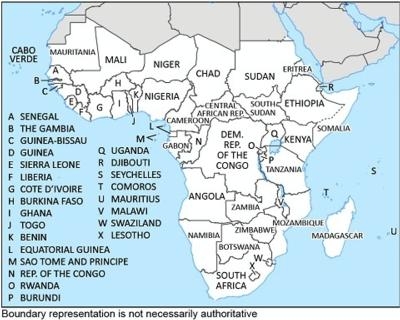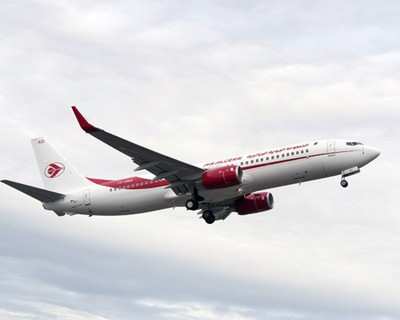African Union Passport To Be Introduced In 2018
New research released by global travel technology provider, Sabre Corporation has revealed that African air travel spend is expected to rise 24% with the introduction of the pan-African passport in 2018. The new passport will enable African travellers to visit other countries on the continent without a visa.

The comprehensive survey by Sabre aimed to uncover the opportunities and challenges faced by travellers in Africa today, to help airlines' growth and provide African travellers an overall better journey. Travellers from four countries – South Africa, Nigeria, Kenya and Egypt were surveyed, with those having flown in the past 24 months saying they would spend 24 percent more with the introduction of the passport (from $1,100 to $1,500 annually).
But despite a willingness among travellers to spend more on flights, travel in Africa still remains inaccessible to the majority, with only 23 percent of those surveyed having travelled abroad at all in the last two years. When asked what prevents them from travelling more, the top reasons were:
- 32% said travel is too expensive
- 31% said it is difficult obtaining VISAs
- 30% said it is too difficult to book travel
- 28% said there are no flights to their chosen destination
Travellers also expressed a number of gripes about their current experiences when travelling:
- 27% said the check-in process takes too long
- 22% said the check-in procedure is confusing
- 20% don’t like the food on aircraft
- 19% think there is not enough to do at the airport

“The results suggest that while travel is inaccessible to many and is difficult for those who do travel, there is a still a strong desire to travel more,” said Dino Gelmetti, vice president, Europe, Middle East and Africa, Airline Solutions, Sabre. “Additionally, most of the pain points can be addressed by airlines, and these tweaks could make all the difference to travellers. African carriers currently face tough competition from international rivals that control 88 percent of African airspace but, as demand for travel increases, African airlines have a real opportunity to win the lion’s share of bookings by addressing the pain points of travellers and going the extra mile to improve their experience.”
Like many other travellers globally, Africans also expressed a strong interest in experiencing a travel journey that was more personalised and appealing to their taste. Respondents said that they would be willing to spend up to $104 per trip on an airline’s extra products and services – such as excess baggage, cabin class upgrades, and special food and beverage – if it improved and personalised their journey.
“Airlines, globally, currently pocket an average of just $16 per passenger on ancillaries, so the fact that African travellers are prepared to spend six times more than that represents a significant retail opportunity for carriers on the continent,” said Gelmetti. “Airlines will flourish if they invest in technology that can make sense of customer data and use it to offer passengers the right product in the right context at the right time. This technology, which empowers airlines to mirror the personalised shopping tactics already mastered by the online retail industry has been proven to increase ancillary revenue by an average of 10 percent, and is being used by some of the world’s most forward-thinking carriers.”
As further encouragement for African carriers, Sabre’s survey respondents stated a number of reasons why people would choose to fly with their local carrier over a foreign airline; the top three reasons were:
- It offers cheaper tickets
- It offers the latest technology on board
- It offers greater comfort on board
(Source: Sabre news release. Image from file)
 Classic Aero-TV: In Praise of Alabamas Patriot Aircraft USA
Classic Aero-TV: In Praise of Alabamas Patriot Aircraft USA NTSB Final Report: Cirrus Design Corp SR22
NTSB Final Report: Cirrus Design Corp SR22 ANN's Daily Aero-Term (12.21.25): Dead Reckoning
ANN's Daily Aero-Term (12.21.25): Dead Reckoning ANN's Daily Aero-Linx (12.21.25)
ANN's Daily Aero-Linx (12.21.25) Aero-News: Quote of the Day (12.21.25)
Aero-News: Quote of the Day (12.21.25)




